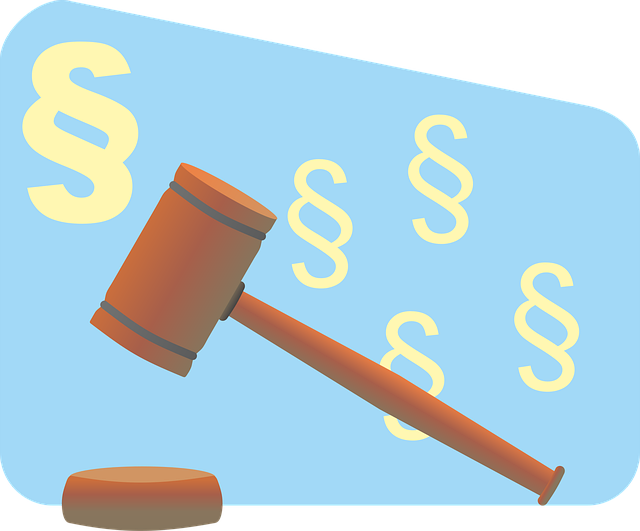Navigating financial crime in the Healthcare Industry requires a multi-faceted approach, combining Compliance measures like robust internal controls and data analytics with effective Dispute Resolution. By addressing billing fraud, insurance scams, and kickbacks through thorough investigations and strategic legal guidance, the industry maintains ethical standards, patient safety, and public trust. Advanced tools for real-time transaction monitoring empower proactive defenses against white-collar crimes, ensuring integrity, transparency, and accountability in complex high-value transactions.
In the intricate landscape of healthcare, financial crimes pose a significant challenge. This article delves into the complex web of regulations and compliance that underpin the healthcare industry, exploring how these factors contribute to—or hinder—the uncovering of financial misconduct. We examine the crucial role of dispute resolution in resolving such cases and highlight best practices for enhancing compliance and preventing fraud. Through insightful case studies, we showcase successful proactive approaches to finance crime probes within the healthcare sector, emphasizing the importance of robust internal controls and industry-wide collaboration.
- Uncovering Financial Crimes in Healthcare: A Complex Web of Regulations and Compliance
- The Role of Dispute Resolution in Resolving Healthcare Industry Financial Misconduct
- Best Practices for Enhancing Compliance and Preventing Fraud in the Healthcare Sector
- Case Studies: Successful Proactive Approaches to Finance Crime Probes in Healthcare
Uncovering Financial Crimes in Healthcare: A Complex Web of Regulations and Compliance

Uncovering financial crimes within the healthcare industry presents a complex web of regulations and compliance challenges. The sector’s intricate nature, involving diverse stakeholders and sensitive patient data, demands meticulous attention to detail when it comes to financial oversight. Navigating this landscape requires a deep understanding of applicable laws and robust internal controls designed to prevent fraudulent activities such as billing irregularities, insurance fraud, and kickbacks.
Healthcare organizations must remain vigilant in their efforts to ensure ethical practices, as these crimes can have severe consequences for patients, providers, and the industry at large. Effective dispute resolution strategies, coupled with a proactive approach to compliance, are essential for winning challenging defenses and achieving extraordinary results. By adhering to stringent regulations, respective businesses can mitigate risks and contribute to maintaining the integrity of healthcare services.
The Role of Dispute Resolution in Resolving Healthcare Industry Financial Misconduct

In the healthcare industry, financial misconduct can manifest through various practices such as billing fraud, insurance claim manipulations, and upcoding. When such wrongdoings come to light, dispute resolution plays a pivotal role in resolving these issues effectively. The process involves careful investigation, fact-finding, and negotiation, with an ultimate goal of achieving justice while minimizing harm to patients and the industry.
Compliance is not just about avoiding indictment; it’s about upholding ethical standards and ensuring patient safety. A robust dispute resolution mechanism helps navigate all stages of the investigative and enforcement process, offering a path towards correction and reform. By leveraging this unprecedented track record of successful resolutions, the healthcare industry can continue to innovate while maintaining integrity, thereby fostering trust among patients, providers, and regulatory bodies alike.
Best Practices for Enhancing Compliance and Preventing Fraud in the Healthcare Sector

In the healthcare industry, enhancing compliance and preventing fraud are paramount to maintaining public trust and ensuring sustainable growth. Best practices include implementing robust internal controls, conducting regular audits, and promoting a culture of ethics and integrity among staff and providers. Advanced technologies like data analytics can detect anomalies in claims processing, while continuous training on regulatory updates helps personnel stay ahead of evolving fraudulent schemes. Effective dispute resolution mechanisms also play a crucial role in identifying patterns and deterring potential perpetrators.
For his clients, the legal professional’s role is multifaceted: providing strategic guidance during investigations, assisting in developing compliance programs tailored to respective business needs, and advocating for fair resolutions in high-stakes cases. By fostering open communication and staying vigilant against emerging threats, healthcare organizations can strengthen their defenses against fraud, thereby safeguarding patients’ interests and securing the integrity of the industry.
Case Studies: Successful Proactive Approaches to Finance Crime Probes in Healthcare

The Healthcare Industry faces unique challenges when it comes to financial crime due to its complex structures and high-value transactions. However, several case studies highlight successful proactive approaches that have led to effective compliance and dispute resolution. These strategies involve leveraging advanced analytics and data-driven insights to identify suspicious patterns and anomalies, long before they escalate into full-blown fraud or corruption cases.
For instance, some organizations have employed sophisticated software tools to monitor financial transactions in real time, flagging unusual behavior and enabling prompt investigations. This proactive stance has proven instrumental in winning challenging defense verdicts against white collar and economic crimes, ensuring the integrity of the industry. Moreover, by fostering a culture of transparency and accountability within healthcare institutions, these measures also help protect philanthropic and political communities from being exploited or associated with illicit activities.
The healthcare industry’s complex landscape of regulations presents a significant challenge in preventing and uncovering financial crimes. However, through robust dispute resolution processes and proactive best practices, organizations can effectively enhance compliance and mitigate fraud risks. By learning from successful case studies, the industry can navigate the intricate web of rules and regulations, ensuring patient safety and financial integrity. Integrating these strategies is vital to fostering a culture of accountability and transparency, ultimately strengthening healthcare’s defensive measures against finance-related crimes.






